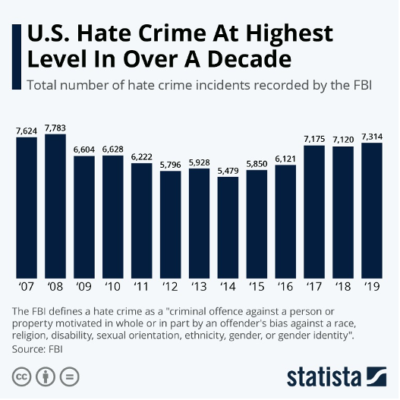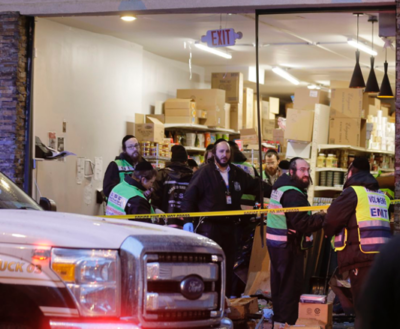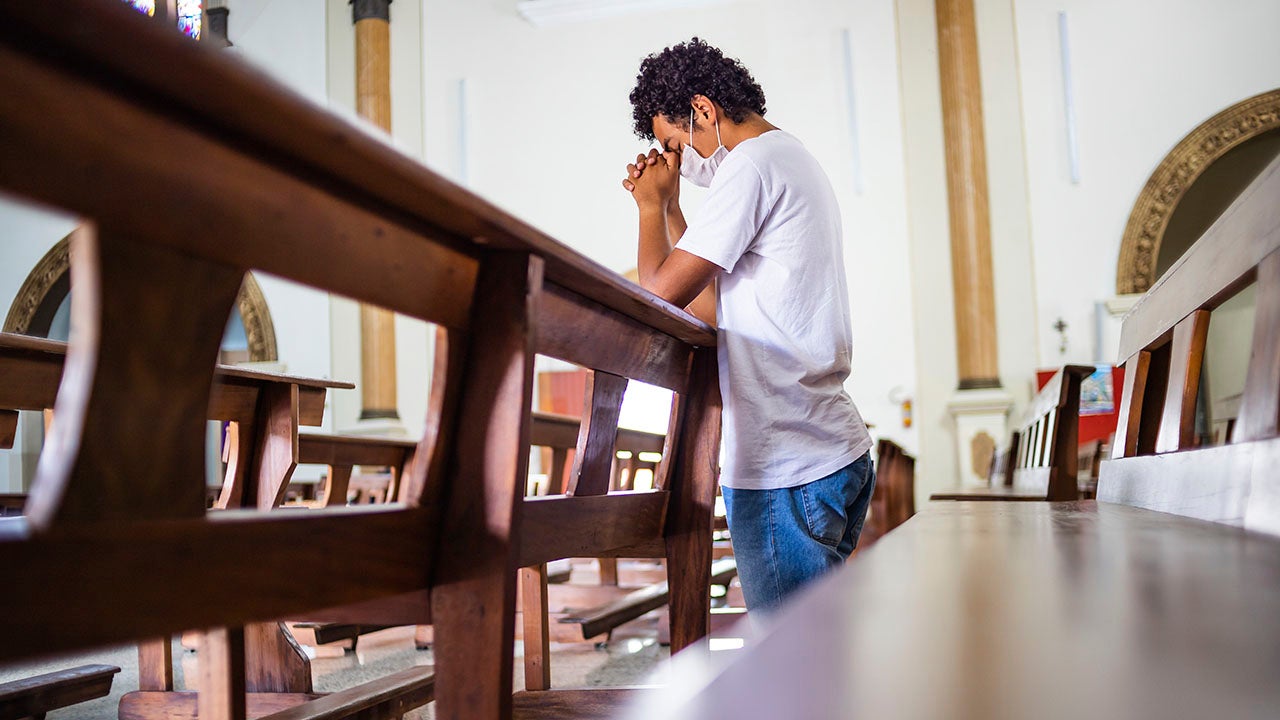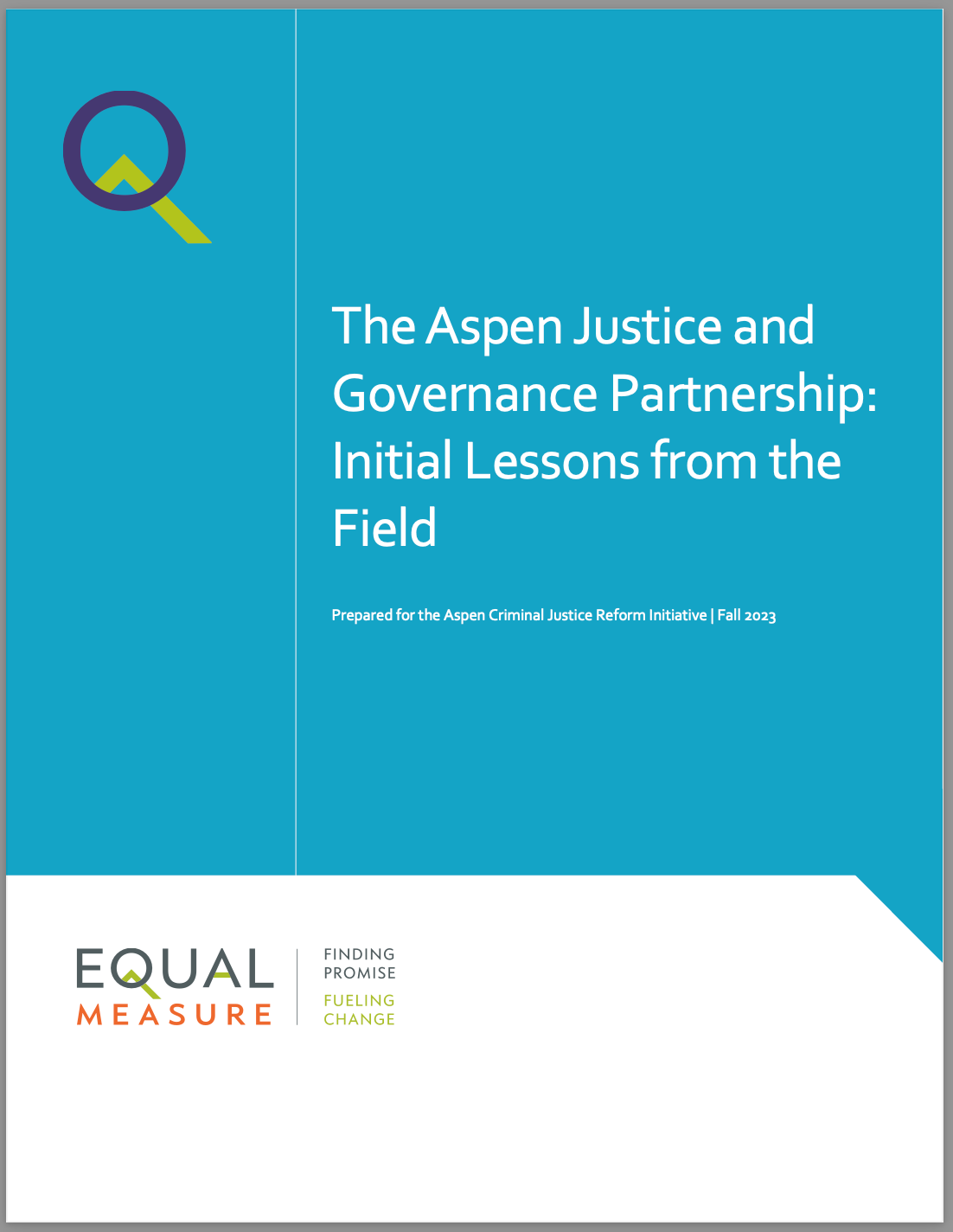In his famous letter to the Jews of Newport, George Washington portrayed a United States that “gives to bigotry no sanction and to persecution no assistance,” a place where those who dwell in the land “merit and enjoy the good will of the other inhabitants.” In the ensuing 230 years, America has taken great strides towards fulfilling this aspiration. However, with injustice and inequality at the forefront of public discourse, the persistent rise in hate crimes serves as another stark reminder that the work remains unfinished.
 Each year the FBI gathers data about hate crimes from thousands of law enforcement agencies across the country and publishes statistics about the previous year. The report just released shows that in 2019 hate crimes reached their highest occurrence in over a decade, an increase of 2.7% since 2018. 2019 also marks the worst year of hate-motivated murders (51) since the FBI began publishing statistics in 1995.
Each year the FBI gathers data about hate crimes from thousands of law enforcement agencies across the country and publishes statistics about the previous year. The report just released shows that in 2019 hate crimes reached their highest occurrence in over a decade, an increase of 2.7% since 2018. 2019 also marks the worst year of hate-motivated murders (51) since the FBI began publishing statistics in 1995.
While the FBI report charts general trends, the data is notoriously incomplete. The FBI found 7,314 hate crimes in 2019, but the Bureau of Justice Statistics estimates an average closer to 250,000 incidents each year.
We know far less than we should, even as the rise in hate crimes erodes American social cohesion and jeopardizes our constitutional freedom of religious expression. Furthermore, massive underreporting stymies our response to a scourge against Americans of all backgrounds.
African American victims account for nearly half of all incidents based on race, but anti-white crimes constituted 16% of that total. At just 2% of the US population, Jews were the subject of an alarming 60% of anti-religious offenses. At the same time, antipathy towards Muslims, Sikhs, Catholics, and Protestants, as well as many other religious identities continue to motivate numerous threats and violence. Our fellow Americans have been targeted for their sexual orientation and gender identity, with gay men making up more than half of all victims in those categories. A rising tide may lift all boats, but rising hatred brings us all down.

EMS workers respond to shooting at Jersey City market.
Statistics alone do not convey the impact of these attacks. Among the victims of hate in 2019 were those killed in a kosher supermarket in Jersey City, Hasidic Jews stabbed in their rabbi’s home in Monsey, NY, as they celebrated Hanukkah, and a woman killed during prayer in a synagogue in Poway, CA. Earlier in the same month, the Poway shooter set fire to a mosque in Escondido, CA, “inspired” by the murder of 51 Muslim worshippers in New Zealand. On a quiet Saturday morning in August, a terrorist entered a Walmart in El Paso to execute as many Latinos as he could, leaving 23 people dead, their families bereft, and a nation shaken. Each victim counts and all must be counted.
So why does “massive underreporting” persist?
Some victims stay silent, such as the 76% of Jews interviewed by American Jewish Committee who did not report antisemitism they had experienced. In other instances, local law enforcement lacks the training to recognize hate crimes. Additionally, even though the FBI is legally mandated to gather data on hate crimes, reporting by local law enforcement is voluntary. Each year tens of thousands of law enforcement agencies and scores of large cities across the country implausibly report zero hate crimes or simply do not submit information. Data drives resources, and without understanding the scope of the problem, we cannot create effective solutions.
To address the underreporting challenge, coalitions like the Muslim-Jewish Advisory Council are advocating for passage of the Jabara-Heyer NO HATE Act, named for two victims whose killers were convicted of hate crimes that never made it into the FBI report. The bill allocates funds to train local law enforcement, create reporting hotlines, and increase resources to liaise with affected communities in all 50 states. It has passed in the House with significant bipartisan support, but advocacy is still needed in the Senate.
Washington’s hopeful letter to the Jews of Newport noted that “The reflection on the days of difficulty and danger which are past is rendered the more sweet, from a consciousness that they are succeeded by days of uncommon prosperity and security.” Let us commit to taking tangible action to usher in days of uncommon security for all Americans, that we might look at the alarming rise in hate crimes as a danger which has passed.
Find the FBI’s 2019 Hate Crimes Statistics here.
Ari M. Gordon is Director of U.S. Muslim-Jewish Relations at American Jewish Committee. Follow him @AriMGordon.
The Inclusive America Project is committed to advancing a thriving US Religious Pluralism and believes an important step to achieving this goal is sharing diverse voices and ideas across our platforms. In this spirit, we are pleased to publish blogs written by external authors working in and around the space.
The views and opinions expressed in this blog do not necessarily reflect those of the Aspen Institute.


